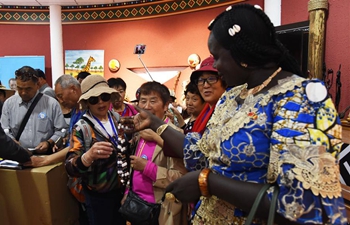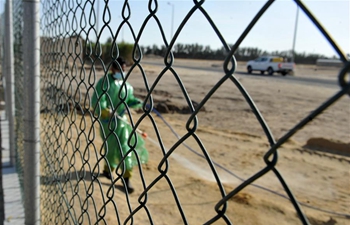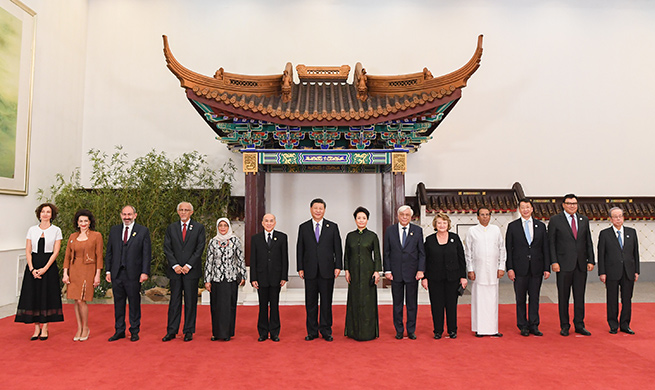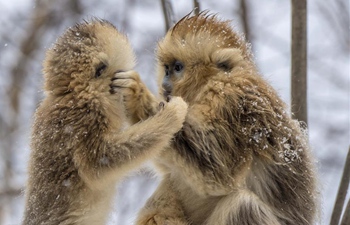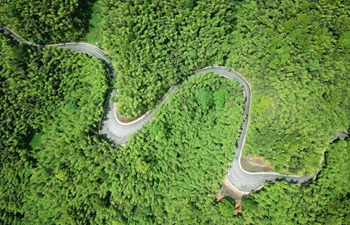NAIROBI, May 15 (Xinhua) -- The Kenyan government on Wednesday called on the insurance industry to develop a policy to cater for human-wildlife conflict compensation.
Najib Balala, cabinet secretary for tourism and wildlife told the industry to consider embracing innovative schemes to meet the increasing demand from claimants.
"The Wildlife Act 2013 that acknowledged monetary compensation as the solution has become too expensive for the government," Balala said during a consultative forum on human-wildlife compensation in Nairobi.
He said that claimants took advantage of this system to make fraudulent claims at the expense of genuine cases, making causes of human-wildlife conflict unmanageable and unsustainable.
"The insurance industry should seize the business opportunity by complementing the government efforts in mitigating the expenses that arise due to human-wildlife conflicts," Balala said.
He told stakeholders from insurance and wildlife conservationists that during 2014-2018, Kenya Wildlife Service (KWS) received 14,000 claims amounting to 10 billion shillings (100 million U.S. dollars).
During the period, 494 people died from human wildlife conflicts while 333 died from snake bites, he said.
"In the 2018-2019, the government allocated 4 million dollars as compensation allocations and has earmarked 5.4 million dollars for the 2019-2020," Balala said.
He said the government is totally overwhelmed by the numbers of claims since the amount required exceeds KWS annual revenue of 30 million dollars.
He said that the government has stopped paying out compensation from snake bites and has instead engaged in stocking health facilities with anti-venom medicine and creating awareness in collaboration with the ministry of health officials.
Balala said that the ongoing dialogue and wide consultation will help create a clear way forward on policy and alternative mechanisms of compensation.
"The solution has to come from joints efforts, without pointing fingers at any party, in order to ensure conservation and preservation of our national heritage for the benefit of all," he added.
The Kenyan official observed that despite having successful anti-poaching strategies, the biggest threat to wildlife now is the fight for land for human settlement and agriculture.
He said that this fight has led to frequent invasions of wildlife corridors and encroachment of the protected areas.
Balala revealed that 68 elephants were poached in 2017 while 400 died due to effects of drought yet little attention was put on conservation measures.
"We need public awareness on wildlife issues such as migratory corridors and conservation matters so as to conserve wildlife as a team," he added.
"Scientists must also come out and explain to populations the wildlife movements in advance to reduce the conflicts," said Balala.
He asked owners of conservancies to take responsibility by beginning to compensate claimants, adding that 90 percent of the conflicts takes place outside the government owned national parks.



